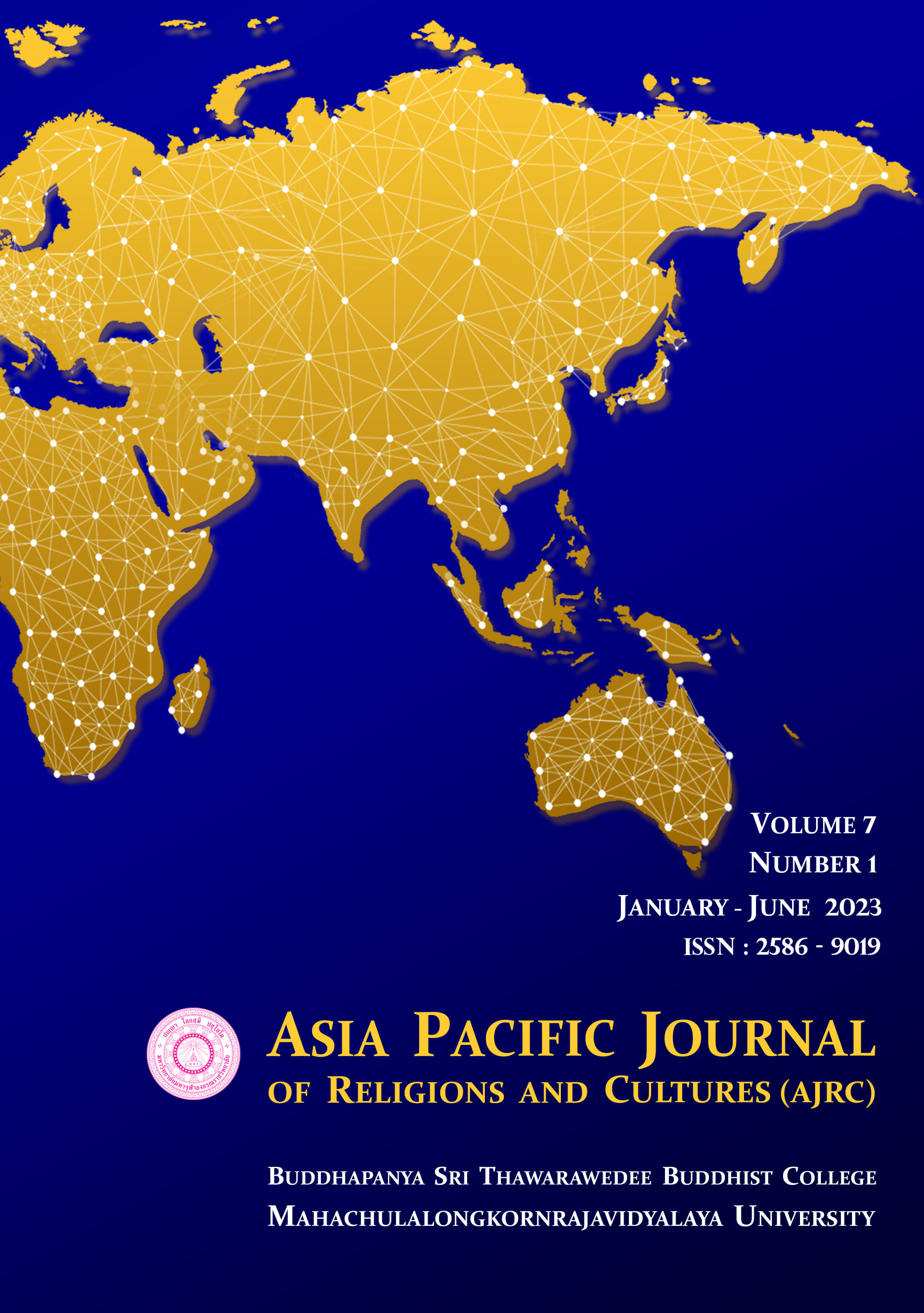GREEN ECONOMY COMMUNITY MODEL DERIVED FROM BUDDHIST ECONOMICS
Main Article Content
Abstract
This study aims to 1) study the Buddhist Economic principles and their effects on society, 2) investigate the green economic concepts and benefits of green cities, and 3) develop a Green Economy Community model for sustainability. This qualitative research is investigated with in-depth interviews. The findings of the study indicate that Buddhist economic principles can be applied to economic issues as a way of life. Buddhism envisions balanced production and consumption as a means of achieving life satisfaction and self-sufficiency, as well as a method for organizing people to coexist in harmony. This results in production-oriented economic management and the integration of production elements that support the economy, society, and culture, thereby integrating theory and practice to propel society toward sustainability. Buddhist economics equates the fundamental purpose of life with the quality of life, which emphasizes genuine welfare and a simple desire rather than material accumulation as the path to true happiness. Concerning the green economy, it is a long-term strategy to address problems and lessen the environmental impact of all economic activities. The green economy consists of ‘inputs’, ‘processes’, and ‘outputs.’ Input elements assess the sustainability of a resource, while process dimensions evaluate the resource effectiveness of production operations and their environmental tolerance. Moreover, the green economy requires genuine and shared wealth, with human capital, society, and the environment constituting a pillar. For economic, social, and environmental sustainability, green city concepts necessitate a balance between the three factors. Sustainability in accordance with the green economy is an essential structural change that elevates awareness of the environmental, energy, and socioeconomic situation in order to preserve the environment and balance sustainable solutions. The fundamental concepts of Buddhist integrated economics must be combined with the established principles of the green economy to create a green, tranquil, and environmentally sustainable green community.
Article Details

This work is licensed under a Creative Commons Attribution-NonCommercial-NoDerivatives 4.0 International License.
References
Brown, C. & Zsolnai, L. (2018). Buddhist Economics: An overview. Society and Economy. 40(4), 497-513.
Brown, C. (2017). Buddhist Economics: An Enlightened Approach to the Dismal Science. London: Bloomsbury Press.
Chang, O. (2019). Wisdom-Based Economic Theory as Informed by Buddhism. Hualin International Journal of Buddhist Studies. 2(2), 31–80.
D’Amato, D. & Korhonen, J. (2021). Integrating the green economy, circular economy and bioeconomy in a strategic sustainability framework. Ecological Economics. 188 (107143).
Ionescu, V. R. et al. (2022). To a Green Economy across the European Union. International Journal of Environmental Research Public Health. 19 (12427).
Kaendera, S. & Leigh, L. (2021). Five Things to Know About Thailand’s Economy and COVID-19. Retrieved April 13, 2023, from https://www.imf.org/en/ News/Articles/2021/06/21/na062121-5-things-to-know-about-thailands-economy-and-covid-19.
Kennet, M & Heinemann, V. (2006). Green Economics: setting the scene. Aims, context, and philosophical underpinning of the distinctive new solutions offered by Green Economics. International Journal of Green Economics. 1 (1/2), 68-102.
Naik, A. (2021). Green Economy and its Role in Achieving Sustainable Development. International Journal of Creative Research Thoughts. 9(8), 556-567.
NSTDA. (2021). BCG Model: Fostering Sustainable Development in Thai Economy. Retrieved April 203, 2023, from https://www.nstda.or.th/en/ images/pdf/BCG_Booklet1.pdf.
Schumacher, E. F. (1975). Small is Beautiful: Economics as if People Mattered. New York: Harper and Row.
Somdet Phra Buddhaghosacarya (P. A. Payutto). (2016). J.B. Dhammavijaya (trans.). Buddhist Economics. Bangkok: The Buddhadhamma Foundation.
Speece, W.M. (2019). Sustainable development and Buddhist economics in Thailand. International Journal of Social Economics. 46(5), 704-721.
Sufiyanto, I. M. et al. (2021). Green Economy for Degenerative Society. Advances in Economics, Business and Management Research. 205, 63-68.
Zharov, A. N. & Isaev, K. V. (2021). Green economy as the main way of development of society. Journal of Ecology and Life Safety. 29 (2), 209–216.
Zinchenko, V. & Boichenko, M. (2022). “Buddhist economics as a return to a rational model of economic management”. The Journal of Philosophical Economics: Reflections on Economic and Social. XV, 227-244.


